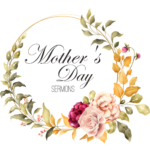
/
References: Proverbs 31:10-31
After this, now I want you to do something as I introduce this to you. You’re in Proverbs 31, right? This is the Proverbs 31 woman. I want you to turn to your left and go back to your Hebrew grammar in your Old Testament.
You’re not turning? Psalm 119 to your Hebrew grammar. Because this is part of the inspired text that we’re going to be looking at today. If you wondered why when you read Psalm 119, the longest chapter in the Bible, that it has 176 verses and is divided up into eight groups of eight verses and you have a funny word at the top of each group, right?
You wondered what that is? Well, if you can simply pronounce that because it’s given to you in English letters, you know the Hebrew alphabet of the Old Testament. As a matter of fact, I just said the Greek word alphabet, alpha, beta, and so we call it the alphabet. And you look at the first two words and you have alif, bath, which are the first two letters of the Hebrew alphabet. We used to have a grocery store in California when we were out there for a few years called alpha, beta. And I thought it would be very appropriate if the Jewish people that lived out there had a kosher grocery store called alif, bath, right?
And they could go there for their kosher food. Well, the reason why Psalm 119 is divided up in the way it is is that verse one through verse eight, if you were looking at a Hebrew Bible, each verse would begin with the alif. That’s our A in English. Each verse begins with that letter, eight of those verses. Then beginning in verse nine, that verse begins with bath or the RB and the next eight verses begin with that Hebrew letter. Then you come to the third one, gimo, that’s a G to us, gamma in Greek, and the next eight verses all begin with that letter. All the way through the 22 letters of the Hebrew alphabet. So 22 times eight is 176. And that’s why you have that many verses.
So there is no other way that we could divide these verses up here in this part of our Bible, but by these things. Now, we call that an acrostic, right? Where you take letters, maybe spell a word like grace, God’s riches at Christ’s expense, or joy, Jesus, others in you. We call those acrostics.
And here is an inspired acrostic. God wrote it this way as the Holy Spirit inspired David to do this. Now, go back to Proverbs 31. The whole book of Lamentations, by the way, is an acrostic. If we were reading that, you would find the first chapter, 22 verses, the second chapter, 22 verses, the fourth chapter, 22 verses, and the fifth chapter, 22 verses. But the third chapter of Lamentations is 66 verses.
And guess why? Because first you have three, the first three verses beginning and then the second three. Interesting, isn’t it? That God would see fit to do that in our Bible. And we ought to notice it because didn’t he inspire every jot and tittle? Didn’t he inspire every… Those are two Hebrew letters, by the way.
And so every letter of the Scripture, God inspired. Now, when you come to Proverbs 31, from verse 10 through verse 31, is a 22 letter acrostic. And so verse 10 begins, the first word of the verse, the first letter in that word is the letter a, or a. And then in verse 11, the first letter in that verse is b, or b. And that continues all the way through verse 31. Now, what I’m going to do is this, we’ve been following that and I’ve been taking each of those letters and giving us an English word that kind of corresponds to what is being taught in this verse. Last year, beginning in verse 10, I talked about the mother who is abounding. In verse 11, blameless and then gracious, then delightful, then helpful, and then vivacious, taking the Hebrew letters as they come.
They don’t sound exactly like our letters. And so, we come to verse 16 through verse 20 and we’ll look at this part of the Hebrew alphabet. And I’ll give you some more words that correspond to what these verses are teaching mothers today. I am glad for mothers and I know you are too. Where would we be without our mothers?
And you know what I got to thinking? I’m glad for four mothers that have existed. I am glad first of all for Eve, the wife of Adam. And even though she made one very costly error, she was a pretty good mother besides that, I want you to know. After all, she was Abel’s mother as well as Cain’s, right? And after all, she was Seth’s mother after that. The godly line, and it was of her seed, God said, Eve’s seed that Jesus Christ himself would come.
God would become incarnate in her seed. So I’m thankful for Eve. I’m also thankful, as I think of my Bible, for Mary, the mother of Jesus. That pure virgin girl who was a sinner needed to be saved by grace and profess Jesus Christ as her savior, by the way. But because of that girl, God chose that vehicle in which to become human so that he might become a man for our sakes in that precious Hebrew girl. And I’m glad for Mary and glad for the life that she lived so that God would find such a girl to become a man in.
She was a sinner and she needed to be saved as she was and profess Christ as her savior. Thank you though for Mary. Thirdly, I am thankful in this world for my mother as you are thankful for your mother. Praise the Lord for our mothers, right? I think I can say this confidently, if it had not been for the faith of my mother in our home and in our household, I would not be standing before you today.
I may not even be in church today. It was because of her faithfulness and her teaching and what happened at her knee and what happened around the dinner table as she spoke to us. Thank God for my mother and I’m wearing a white carnation in her memory today because she passed away in 2001 and I do that every mother’s day. And then fourthly, I am thankful for the mother of my children who by the way has more than compensated for my faults in this life. As you know in the sports analogy, I sure outkicked my coverage but praise the Lord for the woman that God gave me and any husband here worth his salt is thinking the same thing too and thinking God for the woman that God gave you, the mother of your children. Now we need, we have a great need for mothers today.
Bear with me for a minute as I remind you of some things. We have women today who are created in God’s image and likeness. The moment they were conceived in their mother’s womb, they were made in God’s likeness and God saw a place to give them life and their mothers allowed them to live and gave them life and yet those same women created in God’s image refused to give life to the image of God that is inside them today. We need mothers today who honor life and understand the life that God has given them. We have mothers who would smoke and drink and do drugs and force their children to consume the smoke and the alcohol and live in such environment knowing that it is ruined their life and knowing that it will ruin the life of those children and yet they still persist in such things. We have mothers today who blaspheme God constantly from their mouth in front of small children who are now forming words and thoughts and putting their vocabulary together, taking God’s name in vain and teaching those young mouths to do the same thing which they will do for the rest of their lives. And we have mothers who teach immodesty to their daughters as well as to their sons, stumbling themselves in this matter of modesty and causing their children to stumble, who will cause others to stumble, and that will go on generation after generation.
We have mothers like that today. And you know what they need? They need the grace of the Lord Jesus Christ.
They need the love of God shed abroad in their hearts as he did to us. Rather, folks, children need to hear mother pray. Children need to hear from that mouth and from the mouth of their fathers, addresses to God, speaking to God, reverent and holy, and beseeching God for his mercy and his grace.
Those little ears need to learn how to fold their hands and bow their heads and be able to say those prayers with them. Children, little children, need to be taken to church, not sent to church. They need to come into God’s house and see mom and dad go to their classes, and they need to come to their little classes, and they need to see mom and dad singing the songs and opening the song book and carrying their Bible to church and understand that the church is the second most important thing in their life next to their home.
They need to see mom and dad do that. Children need to hear Bible stories. They need to hear about who Jesus was and what he did. They need to hear those stories when they’re young and they’re forming faith, and when those little minds are learning to believe and comprehend so that at the end they have to work to keep that little child from becoming a Christian because of what they believe and accept. These little children need to hear those stories, and children need to learn to love the good and hate the evil, as Hebrews 1 tells us the Lord himself did.
We need to discern what is good and what is evil in this world, and they need to love one and hate the other, and children need to fear God and keep his commandments, for this is the whole duty of man, for God shall bring every work into judgment with every secret thing, whether it be good or whether it be evil. Do you know that when I was 18 I went away to college and really only lived at home for short periods of time like summers and other things since then, but I can still remember as a boy what my mother’s Bible looked like. If I saw it lying somewhere, I could describe my mother’s Bible. I remember seeing the pages of things, you know, the papers and the bulletins and things sticking out of mom’s Bible. I think I still remember some of the marks on the page if you opened that Bible.
I still remember those things. What a great heritage that is and a memory from my mother, and I have a New Testament that she gave me when I went to seminary, and she signed it on the inside, and I treasure that signature, and that Bible I passed on to my daughter Rebecca because when Rebecca was a little girl she took a pen and started writing in that New Testament all through it. So I said to her one day, well this has three generations of markings in them, your grandmother, your dad, and you, so here it’s yours now, and she’ll treasure that because it has that writing of her grandma in it too. Now if in this message this morning I speak of my mother, translate that to your mother would you please?
I don’t know your mother as well as I know mine, and thoughts come to my mind about my mother and I’m sure they do to yours. Let’s go to our text, and in verse 16 of Proverbs 31 you have the Greek letter Zion, we would pronounce it, if you’re switching back and forth to Psalm 119 you’re following the Hebrew alphabet, and that’s the letter zealous, or the letter z, excuse me, so I’m going to use the word zealous. I think this verse tells us that the Proverbs 31 woman, the mother that is describing here is a zealous person, meaning she seizes opportunities that will benefit her household. She considereth a field, and by of it has the means to do it. With the fruit of her hands she planted a vineyard, she sees these opportunities, she knows that her household needs these things, and she is zealous about getting those things done. A field provides grain, a family needs bread, a family needs flour, a family needs that type of product to put on the table, and the vineyard means grapes, and in that country besides water about the only thing they had to drink was grapes, because they would grow in those vineyards, and they would squash those grapes and make concentrate out of it and mix it with a lot of water and have grape drink, and they did that constantly, and so she sees the need for both, and as a mother knowing what her family needs she buys a field, she plants a vineyard, economy, energy.
You have a picture of Ruth in the Old Testament gleaning in the field and bringing home grain for her and Naomi to exist on. And that’s what mothers had to do. And here’s a mother who said, I will get this field, I will buy it, maybe she worked it, maybe others worked it, and I will provide things for my family. Remember Lydia was a businesswoman, Acts 16, a seller of purple, and she ventured down to Philippi and she would sell things there because she made that money when go home and supply her family. These kinds of industrious women become, in the scripture, examples to us. You know, moms are wise with budgets, usually.
We all learn as we get older to do that. They make good economic purchases. How many times have you gone through the grocery store line and you’re in a hurry, you only have one or two things to check out, and the lady in front of you has a stack of coupons this thick. You’re wanting to hurry up and you thought it was a short line, and meanwhile all the other lines go by you, you know, and here they are counting out one coupon, ring it up, next coupon, ring it up, and you’re thinking, oh, and then I stop and think, she’s more frugal than I am.
This lady spent time going through papers, magazines, whatever, getting these coupons together to save a few pennies for her family, and here I am in a big hurry and wishing she hadn’t done it. And yet here’s a verse that tells us that’s what mothers do. That’s what those who love their families do.
Let me also apply it this way, moms or dads also. Aren’t there spiritual fields that you ought to be cultivating? I think a mother ought to realize that church life, for example, is a spiritual field in which you plant grain, and those little children and those grandchildren need to be planted in this field, need to grow in this field, have relationships here, they need to hear the Word of God and learn the songs, and they need to learn this kind of life, the life that Jesus Christ told us to live.
In the youth group, see that these children need to be there and having those kinds of friends and doing those kinds of activities. A mother will look at that field and say, I need to plant grain in that field. There are godly vineyards too of character, of education, of manners as we teach these little ones and as we teach them how to walk and how to talk. And where else are they going to learn this? And what a great atmosphere is going on in this building right now, not only in this room, but in the nursery right now, in the children’s church right now, as these little fields and these little vineyards grow their product.
A good mother sees that. I’m going to give you an illustration I heard just Friday, and I’m going to apologize to Shannon as I do this, but I was visiting in the Whitehead’s home, and they’re going to join this morning. And they were all, I was listening to their testimonies and how they got saved and how they got baptized.
And what a great family. Well, Ethan, as a young boy, heard the stories of Christ in his home and was struggling and wrestling with the truths of the Scripture, knowing that he ought to accept these, knowing that sometime he needed to put his faith in Jesus Christ. And Ethan said that his testimony was, he was watching Tom and Jerry on the cartoons one day. And it was a cartoon about, I don’t know, which one of them went to heaven, Tom or Jerry, died and went to heaven in the cartoon, but wasn’t good enough to stay there so God made him go back. And Shannon, seeing that opportunity as a good mom, seeing where a seed could be planted in that field, used that as an illustration to ask him if he was ready for heaven, if he knew where he would go when he died. And because of that illustration, he put his faith and trust in Jesus Christ as Savior.
There’s a mom that considers a field and buys it and says, I need this opportunity. So Zion, verse 16, zealous, verse 17, cate, we pronounce it, cate, and it’s our English C, the letter C. And so I’m going to use the word credible, credible in verse 17. Regardless of her appearance, she radiates strength of character. her. She girdeth her loins with strength and strengtheneth her arms.
Now I really don’t think it’s talking about mom going to the gym here and pumping iron, you know, and becoming female bodybuilder or something like that. Rather, I think that it is girding up the loins as we find often in the Scriptures. 1 Peter 1.13, wherefore, gird up the loins of your mind. Be sober.
Hope to the end for the grace that is to be brought unto you at the revelation of Jesus Christ. Here is a mom that sees that she needs to keep herself in spiritual shape. She needs to keep sharp.
She needs to have the kind of character that will help her family. Listen to what Peter says in 1 Peter 3. Who’s adorning, speaking of moms? Let it not be that outward adorning of the plating, the hair or the wearing of gold or of putting on of apparel.
Though you have to do those things, don’t make that your beauty. But let it be the hidden man of the heart, the hidden person of the heart in that which is not corruptible, even the ornament of a meek and quiet spirit which is in the sight of God of great price. Here is this mother who girds her loins with strength and strengthens her arms with this kind of character. I think she provides protection for her family. I think she remains more than a match for her children, whether the two-year-olds or the 20-year-olds.
I think this kind of woman stays ahead. I think she is the chandelier of the house, if you will. She’s the centerpiece, the ornament, the beauty, the strength, the light of that house. You remember Psalm 128? Thy wife shall be as a fruitful vine by the sides of thine house, thy children like olive plants around the table.
What a beautiful picture of a home that is. This kind of mom has that kind of strength of character. When my mother died, she had been a school teacher in the public school for 25 years in the language arts department. Too bad I didn’t learn some other things from her. She taught kids. She started a program called the Bible as Literature in the state of Ohio.
They had never had it before. She had a testimony around town and had helped start two different churches my folks did in that town. When she died and we went to a simple funeral, a simple little chapel up in the little town north of Oxford, Ohio, where Don now lives and eat in Ohio, at that funeral, university professors, former principals, and officials from the town where she lived for all those years came to her funeral. Just a simple mom, just born in the Ozarks, raised four kids. As a matter of fact, you would know the name Edwin Yamayuchi, but Edwin Yamayuchi is the nation’s foremost authority on pre-Christian Gnosticism in this country. He came to that funeral to say thanks to my mom because you don’t know who you can affect and what you affect if you put strength of character with your life.
Now let me move on quickly. Verse 18 is the T in the Hebrew alphabet, the Tath, if you will. So I’m going to use the word toilsome. She continuously uses her energies for profitable things. Verse 18, she perceives that her merchandise is good and her candle goes not out by night.
Now there are two views as to what this means. She perceives that her merchandise is good. First of all would be more the secular idea and that is she makes quality things. She has a vineyard after all. She grows things after all.
She’s busy with her hands we’ll see at the spindle, at the wheel. She can sell as much as she can make, in other words. People want her product. They want her homemade pie. They want her stitching. They want what she makes. I read a Russian proverb that says there are two fools in the marketplace. One asks too much and one asks too little. But she knew exactly what to have.
She knew exactly what to make. And I think that is true here. The other view is that she is desirable as a woman in the proper way. She’s beautiful. She has character and she handles it faithfully and gracefully as a Christian woman ought to handle it.
Her merchandise is good and in that sense not for sale. And I think this verse perhaps hits on both of those things. things. And then her candle goes not out by night, that is, it never runs out of oil. She always has a reserve. She always has more that she can do and give. She watches over her family. She does not waste the energy as a lamp burns the oil. She toils into the night if that is necessary. And folks, let me tell you, in a day of personal appearance and loose morals, a woman like this becomes an example of beauty and modesty, of talent and meekness, of gentleness and conviction.
And God give us more mothers like that. Then in verse 19 is the Hebrew Y, the Yodh it’s called. I know you read that and said Yoda, didn’t you?
But it’s not Yoda, it’s Yodh as if it had a T-H in it. So I’m going to use our word youthful. I think here’s the description of someone who always is youthful no matter how old she is.
Although she’s busy, she’s never out of control. Either notice verse 19, she layeth her hands to the spindle and her hands hold the distaff. Now here’s a picture of something similar anyway to our old spinning wheel. And all of us, you know, seen in some pioneer museum somewhere, the old big wheel, and they would take the ball of cotton and they would spin around the wheel and make thread out of it.
We’re not sure exactly if it looked just like that, but obviously they had something like that. And the word spindle is the part of that contraption that had, well in our world, the cotton on it, whatever they pulled thread out of, whatever product they had, they may not have had much cotton. But that is the spindle. And then it would go around the big wheel and then it would come back to the distaff where you would wind it up in a ball of thread. And so what is being seen here? It may be that here is a woman that is so good at this she doesn’t need the wheel.
Some commentators think this is the case. She can take the spindle and she can make thread from it right into her, from a right hand to her left hand and do it quickly and without all the contraption. In that case it would be quite dexterity that she has. Or it might be that this is just the description of that machine and she was always at it, always good at it, and boy that thing would hum when she was working at it.
And maybe it just means that. But young mothers, did you notice, I bet you did, the word hands in this verse and the next verse also. She layeth her hands, well if it’s plural it’s more than one, to the spindle and her hands if it’s plural it’s more than one. So now she has four hands at least to the distaff.
You’re doing. I’ve thought that of my mom before. Busy doing things and dinners on the table, the clothes are washed and you know where do all the hands come from? You know isn’t it a good thing to be young? My mom used to say well you know if you had your choice of having kids when you’re young and energetic or when you’re old and wise I guess God knew that we should have them when we’re young and energetic. Because you need all those hands to hold things together.
But you know what, think of it this way. The spindle where the thread comes out of the glob of cotton or whatever they had is like the child and the distaff in the other hands is like the young adult. And you know what, it doesn’t take long in your spinning and in your work for that thread to go from the small child to the teenager to the young adult does it. It seems like that you haven’t worked very long and all of a sudden those little ones have gone from here to here and now they’re gone. Now moms it may not seem like that, it may seem like that’s an eternity away and you may be wishing the time would fly a little more but let me tell you when it starts flying you wish that it hadn’t. And yet moms you only get one shot at this. You know a farmer has next season, you don’t, you get one season in life.
You get one time to grow these little plants, you get one time for this. I’m going to read you something that I thought was good and this piece of paper I have in my hand is already faded yellow and I don’t know when I got it but at the bottom is writing in my mother’s beautiful handwriting and it says in my scrapbook for over 40 years. So she gave this to me some time ago and she had it for a long time too and it’s called Blessings on Little Boys. God bless all little boys who look like puck with wide eyes, wider mouths, and stick out ears. Rash little boys who stay alive by luck and heaven’s favor in this world of tears.
Ten thousand question asking little boys. Rapid of hand and foot, thought as well. Playing with gorgeous fancies more than toys. Heroes of what they dream but never tell. Father in your vast playground, let them know the loveliness of ocean, star, and hill.
Protect from every bitterness and woe. Your heedless little acolytes, and still grant me the grace I beg upon my knees. Not to forget that I was once one of these. And you know we ought to remember little children, young people, that we will once be one of those. And so you have one chance, moms and dads, to raise these little ones and you don’t get a second chance in this life.
Do it right the first time. Now quickly the last point and that’s in verse 20. The cough is actually our English K. We’ve already had the English C although it will be spelled C-A-P-H, but we use our English K with it. So I’m going to use the word kind. She does not let her abundance change her character. She is kind and generous. She stretches out her hand to the poor. Yea, she reaches forth her hands to the needy. Here is a generous mother. Here is one that needs to gather what she can gather for her own family, but always has something to give out.
Always has something to distribute as well. Alexander McLaren said on this verse, A woman made unfeeling by wealth is a monster. Has God given you much?
Has God put much in your hand? And then you are unfeeling toward others’ needs? Or Dr. Horton said frugal livers and hard workers.
I read that the first time. I had frugal livers. I wonder if I have a frugal liver.
I had to look at it. If frugal livers and hard workers are always the biggest givers. Those who work the hardest, who are most frugal at gathering what they have, I don’t know what anybody gives in this church. I don’t look at the giving records. But I would be willing to wager that the people who are very frugal and sometimes don’t have much in this life are the most consistent and best givers.
It’s just something about human nature. You know the value of money. And when you know it, you know what it means to other people too, and to other things, and you are willing to give it. An interesting note about this verse is the two words for hand and then hands. She stretched out her hand, which this word literally means the palm. The palm of the hand. How do you give something to someone else?
Don’t you put it in the palm of your hand and stretch it out to someone else? She stretched out her hand to the poor. And then the other word, she reaches forth her hands, in this sense we might say in our vernacular, helping hands. She reaches out to help people then, and when you do that, you have your hands ready to hold and ready to work. And here is this mother with so much else to do, so many things that she has to collect herself. She’s got a field to plant and harvest, a vineyard to keep and grow. She’s got the spindle and the staff to work.
She has all of these things to do, and yet her hand is always out to those who need and always helping. Proverbs 11-25 says, The liberal soul shall be made fat, and he that watereth shall be watered also himself. Paul wrote to the Ephesians, Let him that stole steal no more, but rather let him labor, working with his hands the thing which is good, that he may have to give to him that hath a knee.
Why is it that you and I work just for ourselves? No, it’s never been that way, so that we may have hands that reach out to others. Deuteronomy 8 says, But thou shalt remember the Lord thy God, for it is he that giveth thee power to get wealth, that he may establish his covenant, which ye swear unto thy fathers as it is this day. God gives you the ability to make what you make. No wonder in our New Testament giving we understand that it all belongs to God, and he’s just made us stewards of what we have.
What is it if God asks us to give away some of his own money back to someone? I’ll tell you a story I read this week, and it was a great story. I found the… Charles Spurgeon’s autobiography, thanks to Dominic, he had an original copy, but I found a reprinted copy.
And I was reading it. And Charles Spurgeon, the great English preacher of the 1800s, had a grandfather who was a merchant man. He actually sold cheese. And he also preached in the church. So it was kind of his business. And a man, a businessman named Mr. Haddon, said, you know what you ought to do? You ought to go to Leicester and buy cheese wholesale and then bring it back. And when you sell it, you’ll make more money than you’re making the way you’re doing it. And Spurgeon’s grandfather said, well, I would, but I don’t have that kind of money to go buy a bulk of things.
I can’t do it. So the businessman said, you go, here’s some money. You take my money, go buy the cheese, sell it.
And when you make the profit, you pay me back. So he did. He went and bought the cheese. He brought it back. He sold it. He made a good profit. He brought Mr. Haddon the money back. And he said, now, here’s your money back. And I want to know how much interest do I owe you for using your money?
And Mr. Haddon said, oh, no, you don’t understand. I’m going to pay you 5% for putting my money to good use because my money was sitting there doing nothing. And that’s a shame before God. So you have put it to good use. I’m going to pay you 5% for doing it. And I’m going to give it to you for next time.
And every time you use it, I’m going to give you 5% for blessing me to let me put this to work. The Spurgeon’s grandfather named his next born son Haddon from Mr. Haddon. And then a generation later, there was a Charles Haddon Spurgeon born. And that’s where that middle name comes from.
I say that to say this. Do your children carry a legacy of your generosity? Do they ever see disinterested benevolence?
Disinterested benevolence is that almsgiving. Don’t let your right hand see what your left hand is giving. Don’t sound a trumpet as the offering plate goes by and say, look at me, put this in.
No, don’t let anyone know as you give to the poor and as your hand is out to those who have need. Disinterested benevolence. I’m not interested in applause.
I’m not interested even in anyone knowing. And your father, which seeth in secret, shall reward you openly. Have your children seen that from the corner of their eye and learned how to be generous as they’ve grown up in this world. What a blessing that would be to them. Now, that’s the end of our verses. But if your eye skips down to verse 29, let me read the last three verses.
We’ll close there. My daughters have done virtually, many daughters, excuse me, have done virtually. But thou excellest them all. Favor is deceitful. Beauty is vain. But a woman that feareth the Lord. She shall be praised. Give her of the fruit of her hands and let her own works praise her in the gates.
May God give us mothers, grandmothers, and those who will have such influence on us, our church and our children. I want you to stand with me if you will. We’ll bow our heads before we sing a verse of invitation today. Let’s bow our heads.
Let’s go to the Lord in prayer as we’re standing. Now, Father, we have read again this wonderful chapter of such an ideal woman and yet one that you put there because you would have us to be this way. I speak of all of us in these characteristics of life. Thank you, Father, for mothers and grandmothers who have shown us these characteristics. Now, Father, I pray I don’t know how to give an invitation from this other than to ask you to burden our hearts about these truths, to ask moms to look at themselves in their heart and see the little crop of lives that they are growing and plead to you for wisdom and strength and to be more like this that you’ve inspired for us. For husbands to look at their wives and the mother of their children and to say thank you, Lord, for this woman. Thank you, Father, for what you’ve given me to look at our grandmas and our grandpas and the gray head and the wisdom and say thank you for faithfulness.
They’re still in God’s house, still serving you. Then, Father, whatever you need from us by way of surrender, by way of repentance, by way of change, work that in our heart this morning I pray even at this altar or in these seats where we stand. May Jesus Christ be glorified by it. We ask in his name, amen. We’re going to turn to page 525 in our song book. It’s actually a hymn that we
You’re not turning? Psalm 119 to your Hebrew grammar. Because this is part of the inspired text that we’re going to be looking at today. If you wondered why when you read Psalm 119, the longest chapter in the Bible, that it has 176 verses and is divided up into eight groups of eight verses and you have a funny word at the top of each group, right?
You wondered what that is? Well, if you can simply pronounce that because it’s given to you in English letters, you know the Hebrew alphabet of the Old Testament. As a matter of fact, I just said the Greek word alphabet, alpha, beta, and so we call it the alphabet. And you look at the first two words and you have alif, bath, which are the first two letters of the Hebrew alphabet. We used to have a grocery store in California when we were out there for a few years called alpha, beta. And I thought it would be very appropriate if the Jewish people that lived out there had a kosher grocery store called alif, bath, right?
And they could go there for their kosher food. Well, the reason why Psalm 119 is divided up in the way it is is that verse one through verse eight, if you were looking at a Hebrew Bible, each verse would begin with the alif. That’s our A in English. Each verse begins with that letter, eight of those verses. Then beginning in verse nine, that verse begins with bath or the RB and the next eight verses begin with that Hebrew letter. Then you come to the third one, gimo, that’s a G to us, gamma in Greek, and the next eight verses all begin with that letter. All the way through the 22 letters of the Hebrew alphabet. So 22 times eight is 176. And that’s why you have that many verses.
So there is no other way that we could divide these verses up here in this part of our Bible, but by these things. Now, we call that an acrostic, right? Where you take letters, maybe spell a word like grace, God’s riches at Christ’s expense, or joy, Jesus, others in you. We call those acrostics.
And here is an inspired acrostic. God wrote it this way as the Holy Spirit inspired David to do this. Now, go back to Proverbs 31. The whole book of Lamentations, by the way, is an acrostic. If we were reading that, you would find the first chapter, 22 verses, the second chapter, 22 verses, the fourth chapter, 22 verses, and the fifth chapter, 22 verses. But the third chapter of Lamentations is 66 verses.
And guess why? Because first you have three, the first three verses beginning and then the second three. Interesting, isn’t it? That God would see fit to do that in our Bible. And we ought to notice it because didn’t he inspire every jot and tittle? Didn’t he inspire every… Those are two Hebrew letters, by the way.
And so every letter of the Scripture, God inspired. Now, when you come to Proverbs 31, from verse 10 through verse 31, is a 22 letter acrostic. And so verse 10 begins, the first word of the verse, the first letter in that word is the letter a, or a. And then in verse 11, the first letter in that verse is b, or b. And that continues all the way through verse 31. Now, what I’m going to do is this, we’ve been following that and I’ve been taking each of those letters and giving us an English word that kind of corresponds to what is being taught in this verse. Last year, beginning in verse 10, I talked about the mother who is abounding. In verse 11, blameless and then gracious, then delightful, then helpful, and then vivacious, taking the Hebrew letters as they come.
They don’t sound exactly like our letters. And so, we come to verse 16 through verse 20 and we’ll look at this part of the Hebrew alphabet. And I’ll give you some more words that correspond to what these verses are teaching mothers today. I am glad for mothers and I know you are too. Where would we be without our mothers?
And you know what I got to thinking? I’m glad for four mothers that have existed. I am glad first of all for Eve, the wife of Adam. And even though she made one very costly error, she was a pretty good mother besides that, I want you to know. After all, she was Abel’s mother as well as Cain’s, right? And after all, she was Seth’s mother after that. The godly line, and it was of her seed, God said, Eve’s seed that Jesus Christ himself would come.
God would become incarnate in her seed. So I’m thankful for Eve. I’m also thankful, as I think of my Bible, for Mary, the mother of Jesus. That pure virgin girl who was a sinner needed to be saved by grace and profess Jesus Christ as her savior, by the way. But because of that girl, God chose that vehicle in which to become human so that he might become a man for our sakes in that precious Hebrew girl. And I’m glad for Mary and glad for the life that she lived so that God would find such a girl to become a man in.
She was a sinner and she needed to be saved as she was and profess Christ as her savior. Thank you though for Mary. Thirdly, I am thankful in this world for my mother as you are thankful for your mother. Praise the Lord for our mothers, right? I think I can say this confidently, if it had not been for the faith of my mother in our home and in our household, I would not be standing before you today.
I may not even be in church today. It was because of her faithfulness and her teaching and what happened at her knee and what happened around the dinner table as she spoke to us. Thank God for my mother and I’m wearing a white carnation in her memory today because she passed away in 2001 and I do that every mother’s day. And then fourthly, I am thankful for the mother of my children who by the way has more than compensated for my faults in this life. As you know in the sports analogy, I sure outkicked my coverage but praise the Lord for the woman that God gave me and any husband here worth his salt is thinking the same thing too and thinking God for the woman that God gave you, the mother of your children. Now we need, we have a great need for mothers today.
Bear with me for a minute as I remind you of some things. We have women today who are created in God’s image and likeness. The moment they were conceived in their mother’s womb, they were made in God’s likeness and God saw a place to give them life and their mothers allowed them to live and gave them life and yet those same women created in God’s image refused to give life to the image of God that is inside them today. We need mothers today who honor life and understand the life that God has given them. We have mothers who would smoke and drink and do drugs and force their children to consume the smoke and the alcohol and live in such environment knowing that it is ruined their life and knowing that it will ruin the life of those children and yet they still persist in such things. We have mothers today who blaspheme God constantly from their mouth in front of small children who are now forming words and thoughts and putting their vocabulary together, taking God’s name in vain and teaching those young mouths to do the same thing which they will do for the rest of their lives. And we have mothers who teach immodesty to their daughters as well as to their sons, stumbling themselves in this matter of modesty and causing their children to stumble, who will cause others to stumble, and that will go on generation after generation.
We have mothers like that today. And you know what they need? They need the grace of the Lord Jesus Christ.
They need the love of God shed abroad in their hearts as he did to us. Rather, folks, children need to hear mother pray. Children need to hear from that mouth and from the mouth of their fathers, addresses to God, speaking to God, reverent and holy, and beseeching God for his mercy and his grace.
Those little ears need to learn how to fold their hands and bow their heads and be able to say those prayers with them. Children, little children, need to be taken to church, not sent to church. They need to come into God’s house and see mom and dad go to their classes, and they need to come to their little classes, and they need to see mom and dad singing the songs and opening the song book and carrying their Bible to church and understand that the church is the second most important thing in their life next to their home.
They need to see mom and dad do that. Children need to hear Bible stories. They need to hear about who Jesus was and what he did. They need to hear those stories when they’re young and they’re forming faith, and when those little minds are learning to believe and comprehend so that at the end they have to work to keep that little child from becoming a Christian because of what they believe and accept. These little children need to hear those stories, and children need to learn to love the good and hate the evil, as Hebrews 1 tells us the Lord himself did.
We need to discern what is good and what is evil in this world, and they need to love one and hate the other, and children need to fear God and keep his commandments, for this is the whole duty of man, for God shall bring every work into judgment with every secret thing, whether it be good or whether it be evil. Do you know that when I was 18 I went away to college and really only lived at home for short periods of time like summers and other things since then, but I can still remember as a boy what my mother’s Bible looked like. If I saw it lying somewhere, I could describe my mother’s Bible. I remember seeing the pages of things, you know, the papers and the bulletins and things sticking out of mom’s Bible. I think I still remember some of the marks on the page if you opened that Bible.
I still remember those things. What a great heritage that is and a memory from my mother, and I have a New Testament that she gave me when I went to seminary, and she signed it on the inside, and I treasure that signature, and that Bible I passed on to my daughter Rebecca because when Rebecca was a little girl she took a pen and started writing in that New Testament all through it. So I said to her one day, well this has three generations of markings in them, your grandmother, your dad, and you, so here it’s yours now, and she’ll treasure that because it has that writing of her grandma in it too. Now if in this message this morning I speak of my mother, translate that to your mother would you please?
I don’t know your mother as well as I know mine, and thoughts come to my mind about my mother and I’m sure they do to yours. Let’s go to our text, and in verse 16 of Proverbs 31 you have the Greek letter Zion, we would pronounce it, if you’re switching back and forth to Psalm 119 you’re following the Hebrew alphabet, and that’s the letter zealous, or the letter z, excuse me, so I’m going to use the word zealous. I think this verse tells us that the Proverbs 31 woman, the mother that is describing here is a zealous person, meaning she seizes opportunities that will benefit her household. She considereth a field, and by of it has the means to do it. With the fruit of her hands she planted a vineyard, she sees these opportunities, she knows that her household needs these things, and she is zealous about getting those things done. A field provides grain, a family needs bread, a family needs flour, a family needs that type of product to put on the table, and the vineyard means grapes, and in that country besides water about the only thing they had to drink was grapes, because they would grow in those vineyards, and they would squash those grapes and make concentrate out of it and mix it with a lot of water and have grape drink, and they did that constantly, and so she sees the need for both, and as a mother knowing what her family needs she buys a field, she plants a vineyard, economy, energy.
You have a picture of Ruth in the Old Testament gleaning in the field and bringing home grain for her and Naomi to exist on. And that’s what mothers had to do. And here’s a mother who said, I will get this field, I will buy it, maybe she worked it, maybe others worked it, and I will provide things for my family. Remember Lydia was a businesswoman, Acts 16, a seller of purple, and she ventured down to Philippi and she would sell things there because she made that money when go home and supply her family. These kinds of industrious women become, in the scripture, examples to us. You know, moms are wise with budgets, usually.
We all learn as we get older to do that. They make good economic purchases. How many times have you gone through the grocery store line and you’re in a hurry, you only have one or two things to check out, and the lady in front of you has a stack of coupons this thick. You’re wanting to hurry up and you thought it was a short line, and meanwhile all the other lines go by you, you know, and here they are counting out one coupon, ring it up, next coupon, ring it up, and you’re thinking, oh, and then I stop and think, she’s more frugal than I am.
This lady spent time going through papers, magazines, whatever, getting these coupons together to save a few pennies for her family, and here I am in a big hurry and wishing she hadn’t done it. And yet here’s a verse that tells us that’s what mothers do. That’s what those who love their families do.
Let me also apply it this way, moms or dads also. Aren’t there spiritual fields that you ought to be cultivating? I think a mother ought to realize that church life, for example, is a spiritual field in which you plant grain, and those little children and those grandchildren need to be planted in this field, need to grow in this field, have relationships here, they need to hear the Word of God and learn the songs, and they need to learn this kind of life, the life that Jesus Christ told us to live.
In the youth group, see that these children need to be there and having those kinds of friends and doing those kinds of activities. A mother will look at that field and say, I need to plant grain in that field. There are godly vineyards too of character, of education, of manners as we teach these little ones and as we teach them how to walk and how to talk. And where else are they going to learn this? And what a great atmosphere is going on in this building right now, not only in this room, but in the nursery right now, in the children’s church right now, as these little fields and these little vineyards grow their product.
A good mother sees that. I’m going to give you an illustration I heard just Friday, and I’m going to apologize to Shannon as I do this, but I was visiting in the Whitehead’s home, and they’re going to join this morning. And they were all, I was listening to their testimonies and how they got saved and how they got baptized.
And what a great family. Well, Ethan, as a young boy, heard the stories of Christ in his home and was struggling and wrestling with the truths of the Scripture, knowing that he ought to accept these, knowing that sometime he needed to put his faith in Jesus Christ. And Ethan said that his testimony was, he was watching Tom and Jerry on the cartoons one day. And it was a cartoon about, I don’t know, which one of them went to heaven, Tom or Jerry, died and went to heaven in the cartoon, but wasn’t good enough to stay there so God made him go back. And Shannon, seeing that opportunity as a good mom, seeing where a seed could be planted in that field, used that as an illustration to ask him if he was ready for heaven, if he knew where he would go when he died. And because of that illustration, he put his faith and trust in Jesus Christ as Savior.
There’s a mom that considers a field and buys it and says, I need this opportunity. So Zion, verse 16, zealous, verse 17, cate, we pronounce it, cate, and it’s our English C, the letter C. And so I’m going to use the word credible, credible in verse 17. Regardless of her appearance, she radiates strength of character. her. She girdeth her loins with strength and strengtheneth her arms.
Now I really don’t think it’s talking about mom going to the gym here and pumping iron, you know, and becoming female bodybuilder or something like that. Rather, I think that it is girding up the loins as we find often in the Scriptures. 1 Peter 1.13, wherefore, gird up the loins of your mind. Be sober.
Hope to the end for the grace that is to be brought unto you at the revelation of Jesus Christ. Here is a mom that sees that she needs to keep herself in spiritual shape. She needs to keep sharp.
She needs to have the kind of character that will help her family. Listen to what Peter says in 1 Peter 3. Who’s adorning, speaking of moms? Let it not be that outward adorning of the plating, the hair or the wearing of gold or of putting on of apparel.
Though you have to do those things, don’t make that your beauty. But let it be the hidden man of the heart, the hidden person of the heart in that which is not corruptible, even the ornament of a meek and quiet spirit which is in the sight of God of great price. Here is this mother who girds her loins with strength and strengthens her arms with this kind of character. I think she provides protection for her family. I think she remains more than a match for her children, whether the two-year-olds or the 20-year-olds.
I think this kind of woman stays ahead. I think she is the chandelier of the house, if you will. She’s the centerpiece, the ornament, the beauty, the strength, the light of that house. You remember Psalm 128? Thy wife shall be as a fruitful vine by the sides of thine house, thy children like olive plants around the table.
What a beautiful picture of a home that is. This kind of mom has that kind of strength of character. When my mother died, she had been a school teacher in the public school for 25 years in the language arts department. Too bad I didn’t learn some other things from her. She taught kids. She started a program called the Bible as Literature in the state of Ohio.
They had never had it before. She had a testimony around town and had helped start two different churches my folks did in that town. When she died and we went to a simple funeral, a simple little chapel up in the little town north of Oxford, Ohio, where Don now lives and eat in Ohio, at that funeral, university professors, former principals, and officials from the town where she lived for all those years came to her funeral. Just a simple mom, just born in the Ozarks, raised four kids. As a matter of fact, you would know the name Edwin Yamayuchi, but Edwin Yamayuchi is the nation’s foremost authority on pre-Christian Gnosticism in this country. He came to that funeral to say thanks to my mom because you don’t know who you can affect and what you affect if you put strength of character with your life.
Now let me move on quickly. Verse 18 is the T in the Hebrew alphabet, the Tath, if you will. So I’m going to use the word toilsome. She continuously uses her energies for profitable things. Verse 18, she perceives that her merchandise is good and her candle goes not out by night.
Now there are two views as to what this means. She perceives that her merchandise is good. First of all would be more the secular idea and that is she makes quality things. She has a vineyard after all. She grows things after all.
She’s busy with her hands we’ll see at the spindle, at the wheel. She can sell as much as she can make, in other words. People want her product. They want her homemade pie. They want her stitching. They want what she makes. I read a Russian proverb that says there are two fools in the marketplace. One asks too much and one asks too little. But she knew exactly what to have.
She knew exactly what to make. And I think that is true here. The other view is that she is desirable as a woman in the proper way. She’s beautiful. She has character and she handles it faithfully and gracefully as a Christian woman ought to handle it.
Her merchandise is good and in that sense not for sale. And I think this verse perhaps hits on both of those things. things. And then her candle goes not out by night, that is, it never runs out of oil. She always has a reserve. She always has more that she can do and give. She watches over her family. She does not waste the energy as a lamp burns the oil. She toils into the night if that is necessary. And folks, let me tell you, in a day of personal appearance and loose morals, a woman like this becomes an example of beauty and modesty, of talent and meekness, of gentleness and conviction.
And God give us more mothers like that. Then in verse 19 is the Hebrew Y, the Yodh it’s called. I know you read that and said Yoda, didn’t you?
But it’s not Yoda, it’s Yodh as if it had a T-H in it. So I’m going to use our word youthful. I think here’s the description of someone who always is youthful no matter how old she is.
Although she’s busy, she’s never out of control. Either notice verse 19, she layeth her hands to the spindle and her hands hold the distaff. Now here’s a picture of something similar anyway to our old spinning wheel. And all of us, you know, seen in some pioneer museum somewhere, the old big wheel, and they would take the ball of cotton and they would spin around the wheel and make thread out of it.
We’re not sure exactly if it looked just like that, but obviously they had something like that. And the word spindle is the part of that contraption that had, well in our world, the cotton on it, whatever they pulled thread out of, whatever product they had, they may not have had much cotton. But that is the spindle. And then it would go around the big wheel and then it would come back to the distaff where you would wind it up in a ball of thread. And so what is being seen here? It may be that here is a woman that is so good at this she doesn’t need the wheel.
Some commentators think this is the case. She can take the spindle and she can make thread from it right into her, from a right hand to her left hand and do it quickly and without all the contraption. In that case it would be quite dexterity that she has. Or it might be that this is just the description of that machine and she was always at it, always good at it, and boy that thing would hum when she was working at it.
And maybe it just means that. But young mothers, did you notice, I bet you did, the word hands in this verse and the next verse also. She layeth her hands, well if it’s plural it’s more than one, to the spindle and her hands if it’s plural it’s more than one. So now she has four hands at least to the distaff.
You’re doing. I’ve thought that of my mom before. Busy doing things and dinners on the table, the clothes are washed and you know where do all the hands come from? You know isn’t it a good thing to be young? My mom used to say well you know if you had your choice of having kids when you’re young and energetic or when you’re old and wise I guess God knew that we should have them when we’re young and energetic. Because you need all those hands to hold things together.
But you know what, think of it this way. The spindle where the thread comes out of the glob of cotton or whatever they had is like the child and the distaff in the other hands is like the young adult. And you know what, it doesn’t take long in your spinning and in your work for that thread to go from the small child to the teenager to the young adult does it. It seems like that you haven’t worked very long and all of a sudden those little ones have gone from here to here and now they’re gone. Now moms it may not seem like that, it may seem like that’s an eternity away and you may be wishing the time would fly a little more but let me tell you when it starts flying you wish that it hadn’t. And yet moms you only get one shot at this. You know a farmer has next season, you don’t, you get one season in life.
You get one time to grow these little plants, you get one time for this. I’m going to read you something that I thought was good and this piece of paper I have in my hand is already faded yellow and I don’t know when I got it but at the bottom is writing in my mother’s beautiful handwriting and it says in my scrapbook for over 40 years. So she gave this to me some time ago and she had it for a long time too and it’s called Blessings on Little Boys. God bless all little boys who look like puck with wide eyes, wider mouths, and stick out ears. Rash little boys who stay alive by luck and heaven’s favor in this world of tears.
Ten thousand question asking little boys. Rapid of hand and foot, thought as well. Playing with gorgeous fancies more than toys. Heroes of what they dream but never tell. Father in your vast playground, let them know the loveliness of ocean, star, and hill.
Protect from every bitterness and woe. Your heedless little acolytes, and still grant me the grace I beg upon my knees. Not to forget that I was once one of these. And you know we ought to remember little children, young people, that we will once be one of those. And so you have one chance, moms and dads, to raise these little ones and you don’t get a second chance in this life.
Do it right the first time. Now quickly the last point and that’s in verse 20. The cough is actually our English K. We’ve already had the English C although it will be spelled C-A-P-H, but we use our English K with it. So I’m going to use the word kind. She does not let her abundance change her character. She is kind and generous. She stretches out her hand to the poor. Yea, she reaches forth her hands to the needy. Here is a generous mother. Here is one that needs to gather what she can gather for her own family, but always has something to give out.
Always has something to distribute as well. Alexander McLaren said on this verse, A woman made unfeeling by wealth is a monster. Has God given you much?
Has God put much in your hand? And then you are unfeeling toward others’ needs? Or Dr. Horton said frugal livers and hard workers.
I read that the first time. I had frugal livers. I wonder if I have a frugal liver.
I had to look at it. If frugal livers and hard workers are always the biggest givers. Those who work the hardest, who are most frugal at gathering what they have, I don’t know what anybody gives in this church. I don’t look at the giving records. But I would be willing to wager that the people who are very frugal and sometimes don’t have much in this life are the most consistent and best givers.
It’s just something about human nature. You know the value of money. And when you know it, you know what it means to other people too, and to other things, and you are willing to give it. An interesting note about this verse is the two words for hand and then hands. She stretched out her hand, which this word literally means the palm. The palm of the hand. How do you give something to someone else?
Don’t you put it in the palm of your hand and stretch it out to someone else? She stretched out her hand to the poor. And then the other word, she reaches forth her hands, in this sense we might say in our vernacular, helping hands. She reaches out to help people then, and when you do that, you have your hands ready to hold and ready to work. And here is this mother with so much else to do, so many things that she has to collect herself. She’s got a field to plant and harvest, a vineyard to keep and grow. She’s got the spindle and the staff to work.
She has all of these things to do, and yet her hand is always out to those who need and always helping. Proverbs 11-25 says, The liberal soul shall be made fat, and he that watereth shall be watered also himself. Paul wrote to the Ephesians, Let him that stole steal no more, but rather let him labor, working with his hands the thing which is good, that he may have to give to him that hath a knee.
Why is it that you and I work just for ourselves? No, it’s never been that way, so that we may have hands that reach out to others. Deuteronomy 8 says, But thou shalt remember the Lord thy God, for it is he that giveth thee power to get wealth, that he may establish his covenant, which ye swear unto thy fathers as it is this day. God gives you the ability to make what you make. No wonder in our New Testament giving we understand that it all belongs to God, and he’s just made us stewards of what we have.
What is it if God asks us to give away some of his own money back to someone? I’ll tell you a story I read this week, and it was a great story. I found the… Charles Spurgeon’s autobiography, thanks to Dominic, he had an original copy, but I found a reprinted copy.
And I was reading it. And Charles Spurgeon, the great English preacher of the 1800s, had a grandfather who was a merchant man. He actually sold cheese. And he also preached in the church. So it was kind of his business. And a man, a businessman named Mr. Haddon, said, you know what you ought to do? You ought to go to Leicester and buy cheese wholesale and then bring it back. And when you sell it, you’ll make more money than you’re making the way you’re doing it. And Spurgeon’s grandfather said, well, I would, but I don’t have that kind of money to go buy a bulk of things.
I can’t do it. So the businessman said, you go, here’s some money. You take my money, go buy the cheese, sell it.
And when you make the profit, you pay me back. So he did. He went and bought the cheese. He brought it back. He sold it. He made a good profit. He brought Mr. Haddon the money back. And he said, now, here’s your money back. And I want to know how much interest do I owe you for using your money?
And Mr. Haddon said, oh, no, you don’t understand. I’m going to pay you 5% for putting my money to good use because my money was sitting there doing nothing. And that’s a shame before God. So you have put it to good use. I’m going to pay you 5% for doing it. And I’m going to give it to you for next time.
And every time you use it, I’m going to give you 5% for blessing me to let me put this to work. The Spurgeon’s grandfather named his next born son Haddon from Mr. Haddon. And then a generation later, there was a Charles Haddon Spurgeon born. And that’s where that middle name comes from.
I say that to say this. Do your children carry a legacy of your generosity? Do they ever see disinterested benevolence?
Disinterested benevolence is that almsgiving. Don’t let your right hand see what your left hand is giving. Don’t sound a trumpet as the offering plate goes by and say, look at me, put this in.
No, don’t let anyone know as you give to the poor and as your hand is out to those who have need. Disinterested benevolence. I’m not interested in applause.
I’m not interested even in anyone knowing. And your father, which seeth in secret, shall reward you openly. Have your children seen that from the corner of their eye and learned how to be generous as they’ve grown up in this world. What a blessing that would be to them. Now, that’s the end of our verses. But if your eye skips down to verse 29, let me read the last three verses.
We’ll close there. My daughters have done virtually, many daughters, excuse me, have done virtually. But thou excellest them all. Favor is deceitful. Beauty is vain. But a woman that feareth the Lord. She shall be praised. Give her of the fruit of her hands and let her own works praise her in the gates.
May God give us mothers, grandmothers, and those who will have such influence on us, our church and our children. I want you to stand with me if you will. We’ll bow our heads before we sing a verse of invitation today. Let’s bow our heads.
Let’s go to the Lord in prayer as we’re standing. Now, Father, we have read again this wonderful chapter of such an ideal woman and yet one that you put there because you would have us to be this way. I speak of all of us in these characteristics of life. Thank you, Father, for mothers and grandmothers who have shown us these characteristics. Now, Father, I pray I don’t know how to give an invitation from this other than to ask you to burden our hearts about these truths, to ask moms to look at themselves in their heart and see the little crop of lives that they are growing and plead to you for wisdom and strength and to be more like this that you’ve inspired for us. For husbands to look at their wives and the mother of their children and to say thank you, Lord, for this woman. Thank you, Father, for what you’ve given me to look at our grandmas and our grandpas and the gray head and the wisdom and say thank you for faithfulness.
They’re still in God’s house, still serving you. Then, Father, whatever you need from us by way of surrender, by way of repentance, by way of change, work that in our heart this morning I pray even at this altar or in these seats where we stand. May Jesus Christ be glorified by it. We ask in his name, amen. We’re going to turn to page 525 in our song book. It’s actually a hymn that we

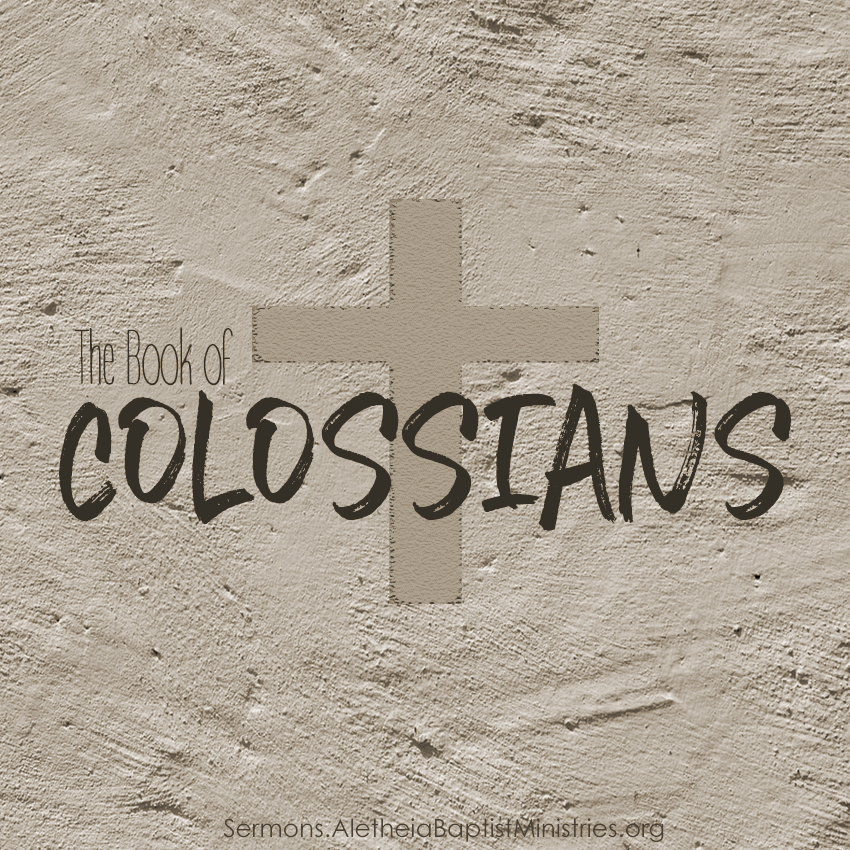
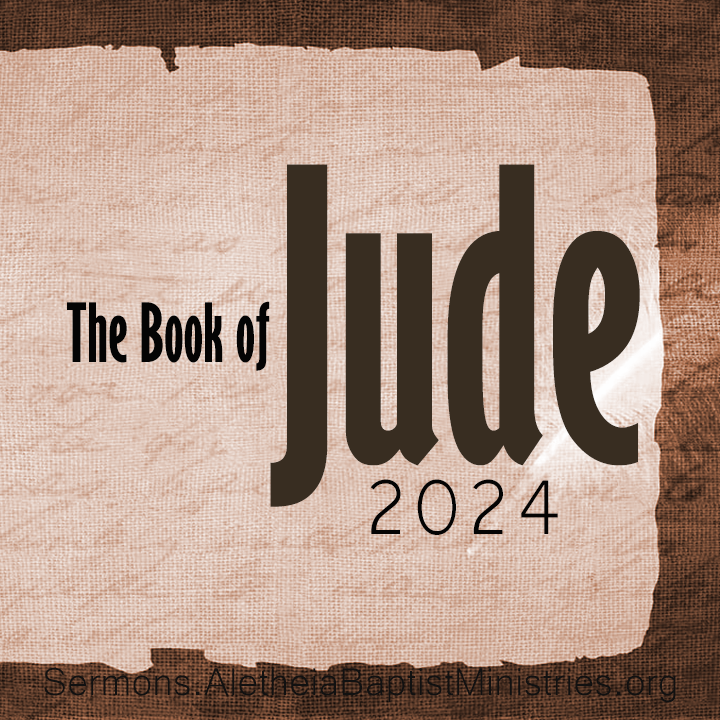
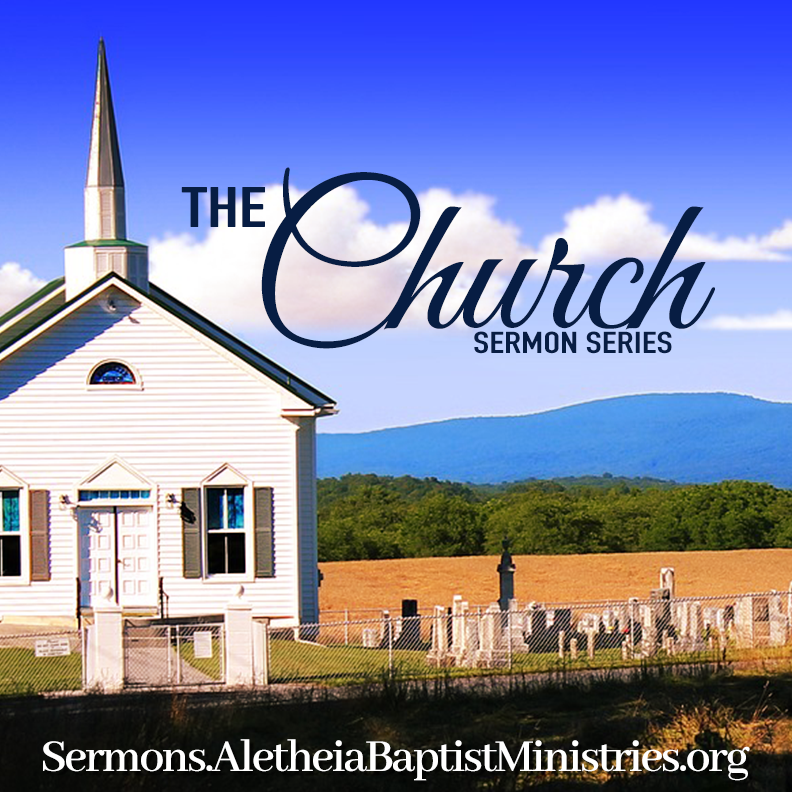
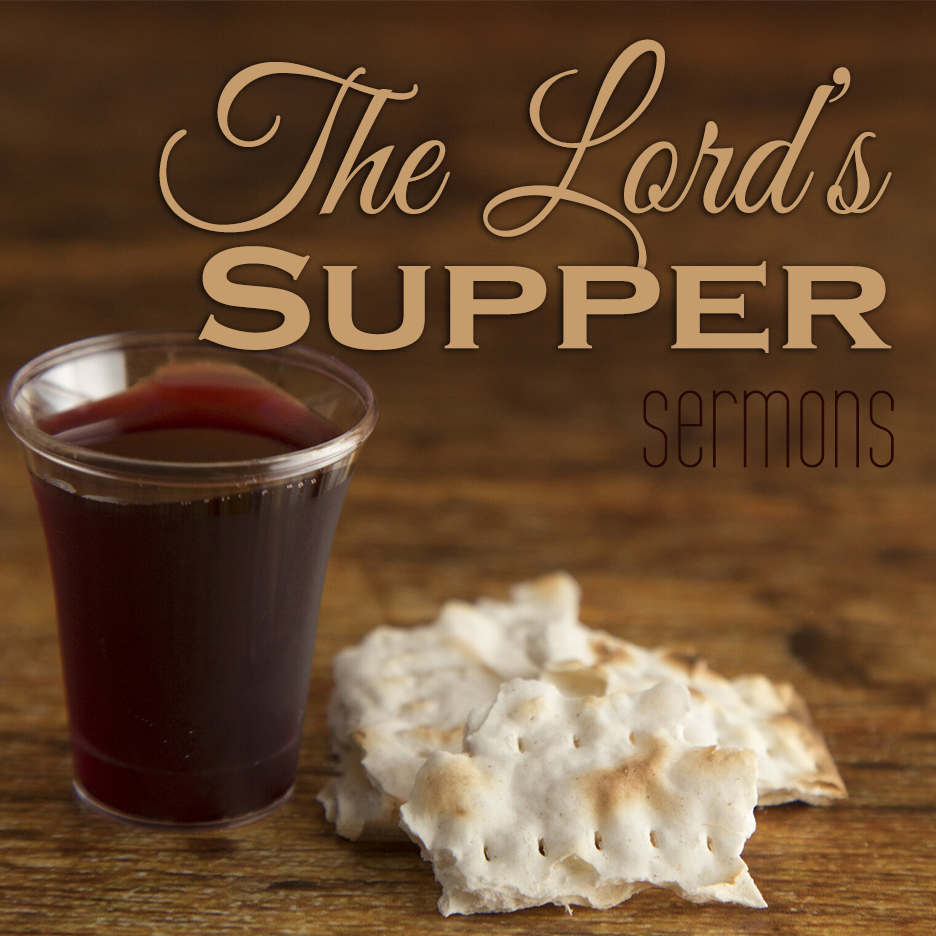
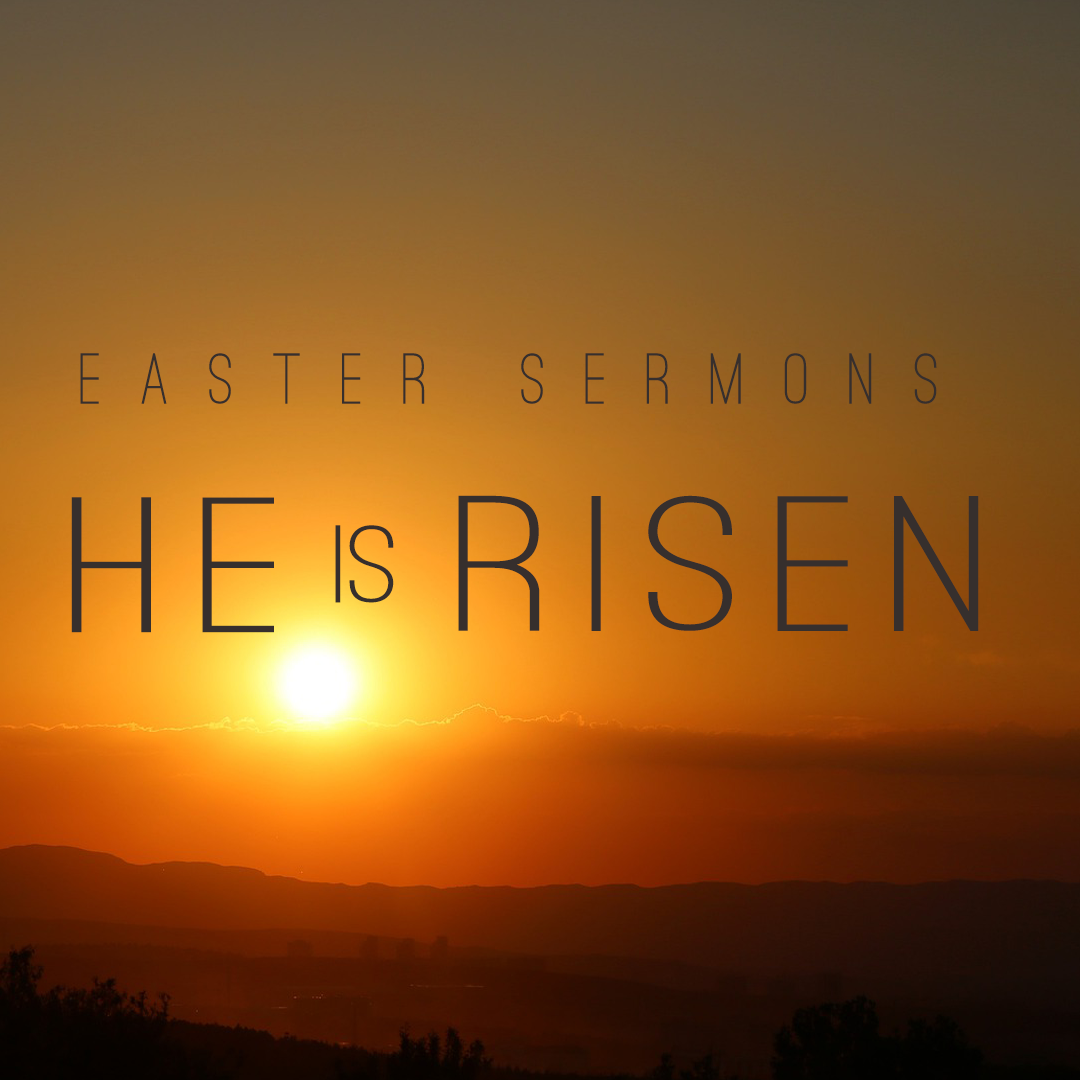
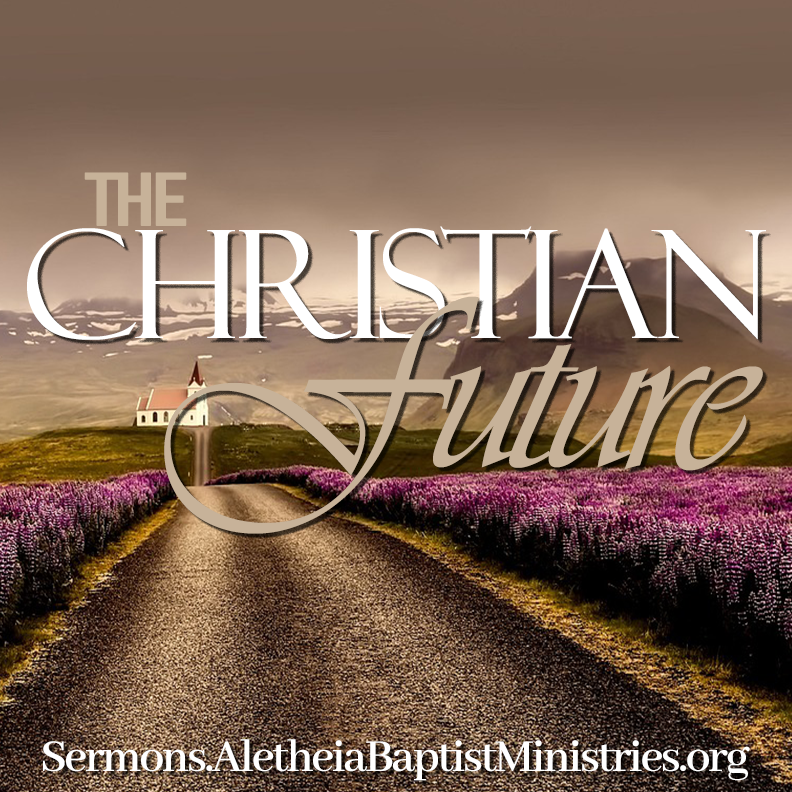
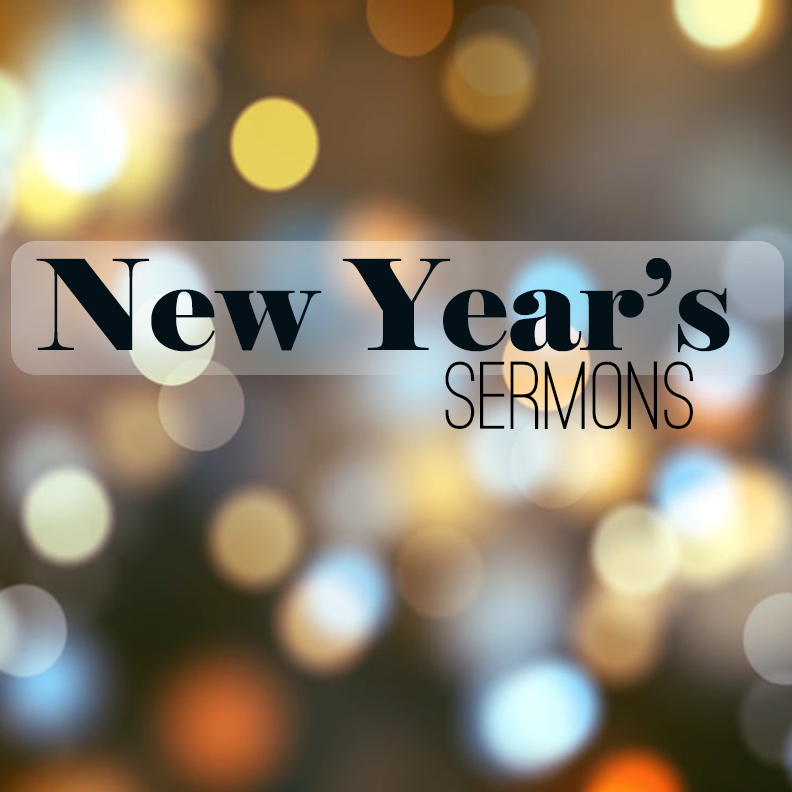
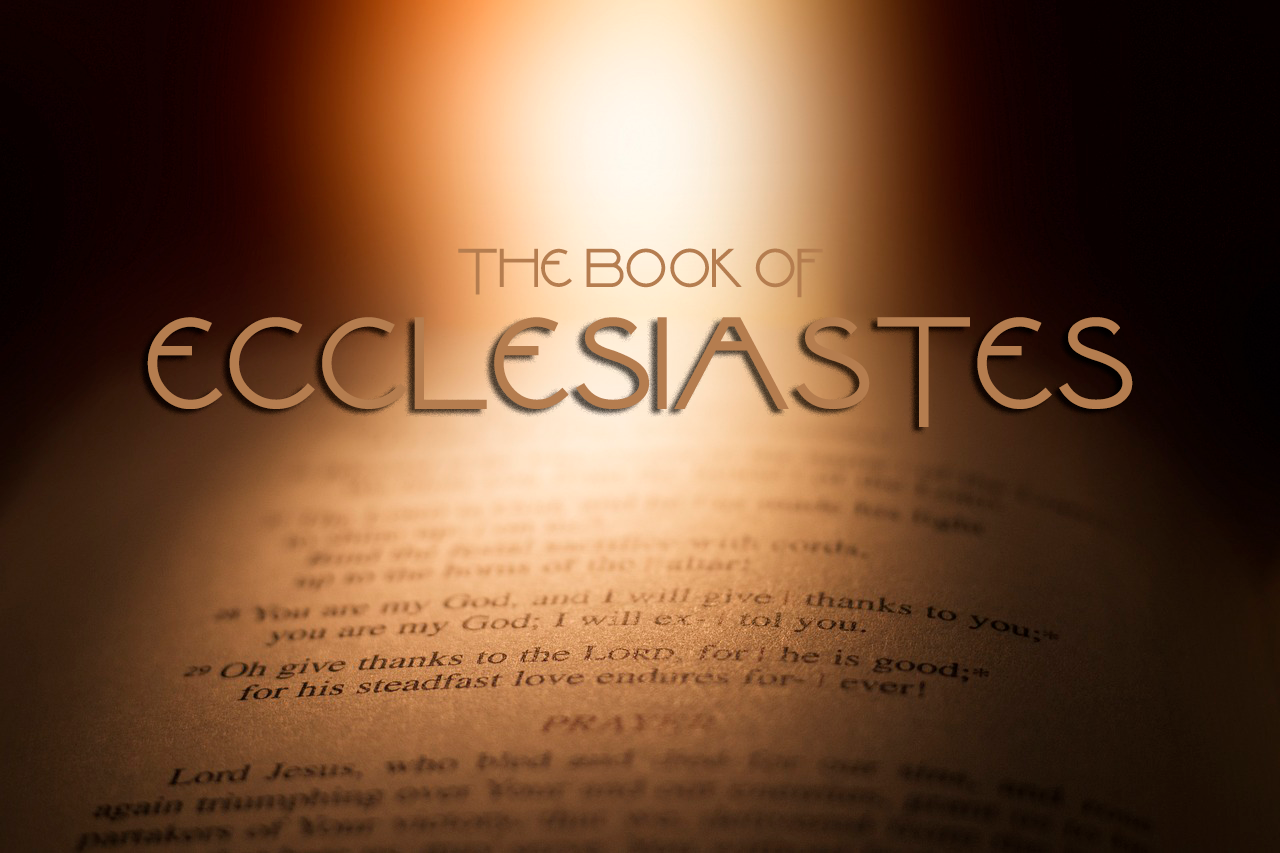
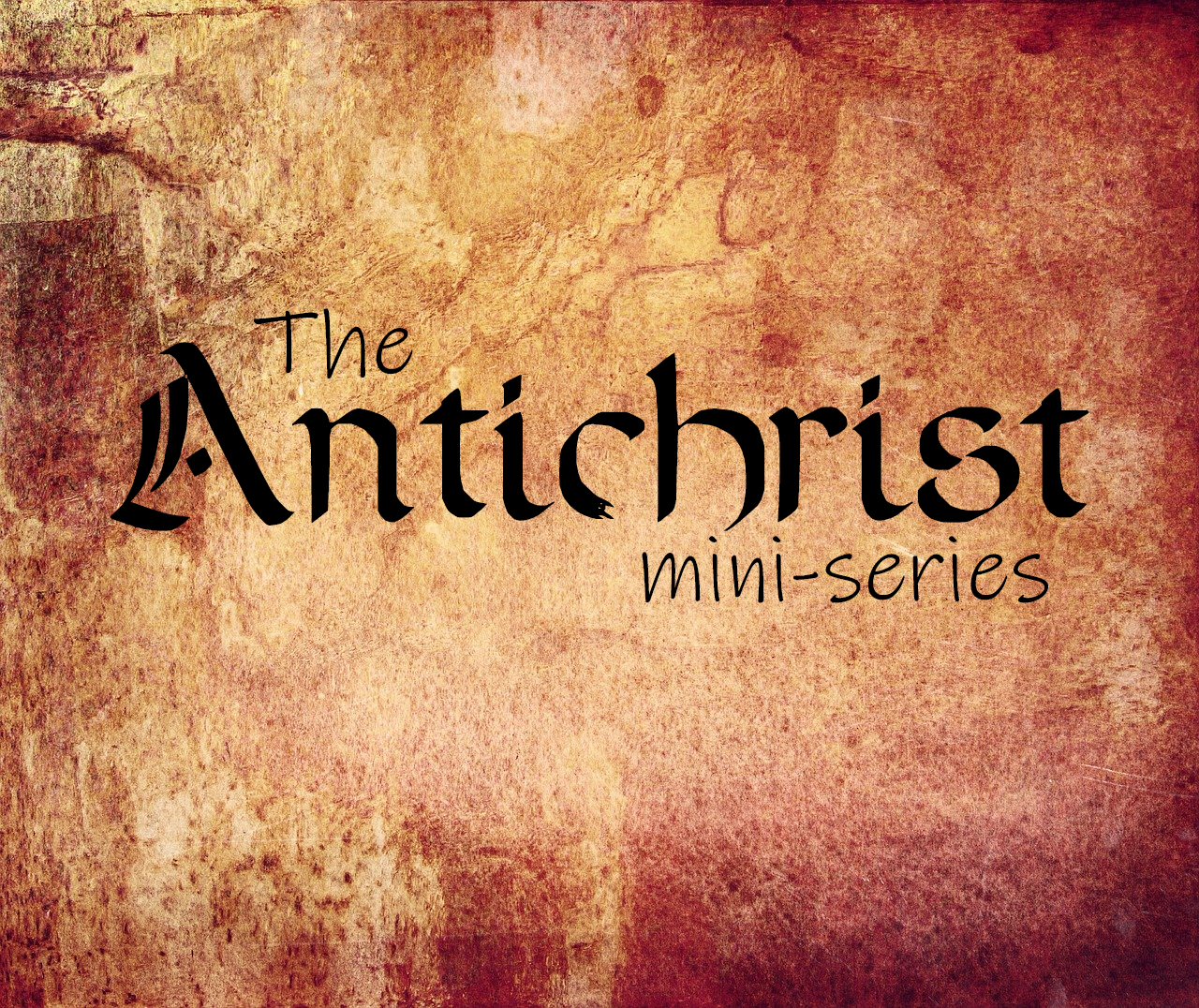
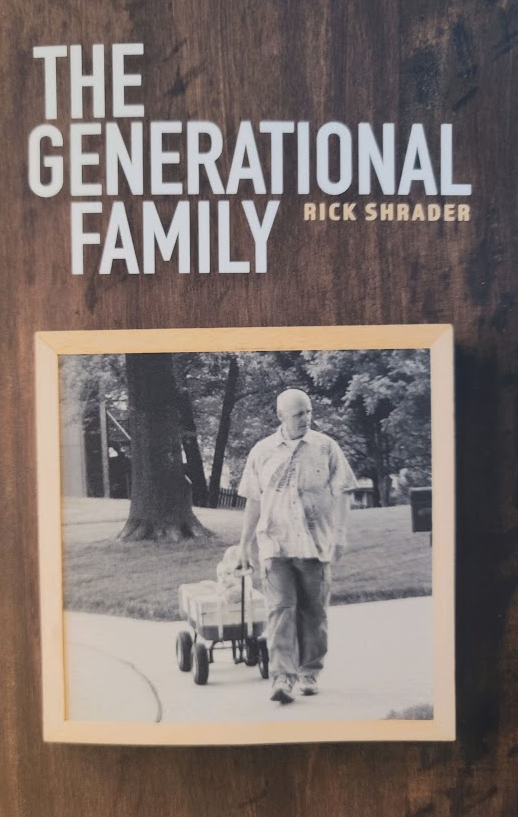
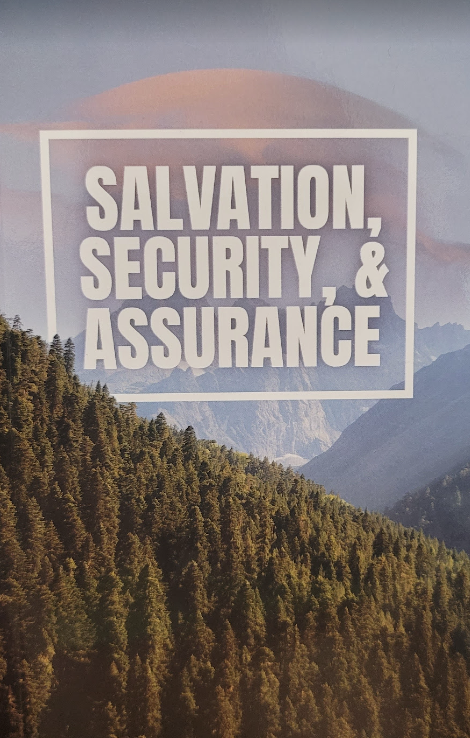


Leave a Reply